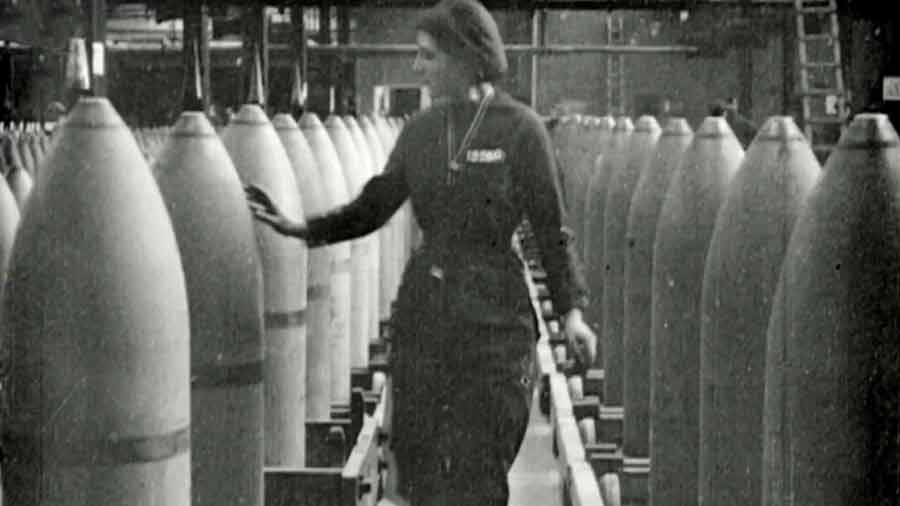Britain’s Great War episode 2 – The War Machine: In the second part of his landmark series on how the First World War affected the lives of the British people, Jeremy Paxman describes the crisis facing the country as it becomes clear it is fatally unprepared to fight a modern industrial war.
Now the whole population is enlisted to turn the country into a war machine; women fill the factories to make bombs and bullets, men are forced to fight at the front, and conscientious objectors are threatened with the firing squad and striking shipbuilders with jail. Even the beer is watered down on government orders.
Britain is having to learn to do as it is told.
Britain’s Great War episode 2 – The War Machine
The creation of the German Reich following victory in the 1871 Franco-Prussian War led to a massive increase in Germany’s economic and industrial strength. Admiral Alfred von Tirpitz and Wilhelm II, who became Emperor in 1890, sought to use that to create a Kaiserliche Marine or Imperial German Navy to compete with Britain’s Royal Navy for world naval supremacy.
In doing so, they were influenced by US naval strategist Alfred Mahan, who argued possession of a blue-water navy was vital for global power projection; Tirpitz translated his books into German and Wilhelm made them required reading. However, it was also driven by Wilhelm’s admiration of the Royal Navy and desire to outdo it.
This resulted in the Anglo-German naval arms race but the launch of HMS Dreadnought in 1906 gave the Royal Navy a technological advantage over its German rival, which they never lost. Ultimately, the race diverted huge resources to creating a German navy large enough to antagonise Britain, but not defeat it. In 1911, Chancellor Theobald von Bethmann-Hollweg acknowledged defeat, leading to the Rüstungswende or ‘armaments turning point’, when Germany switched expenditure from the navy to the army.




